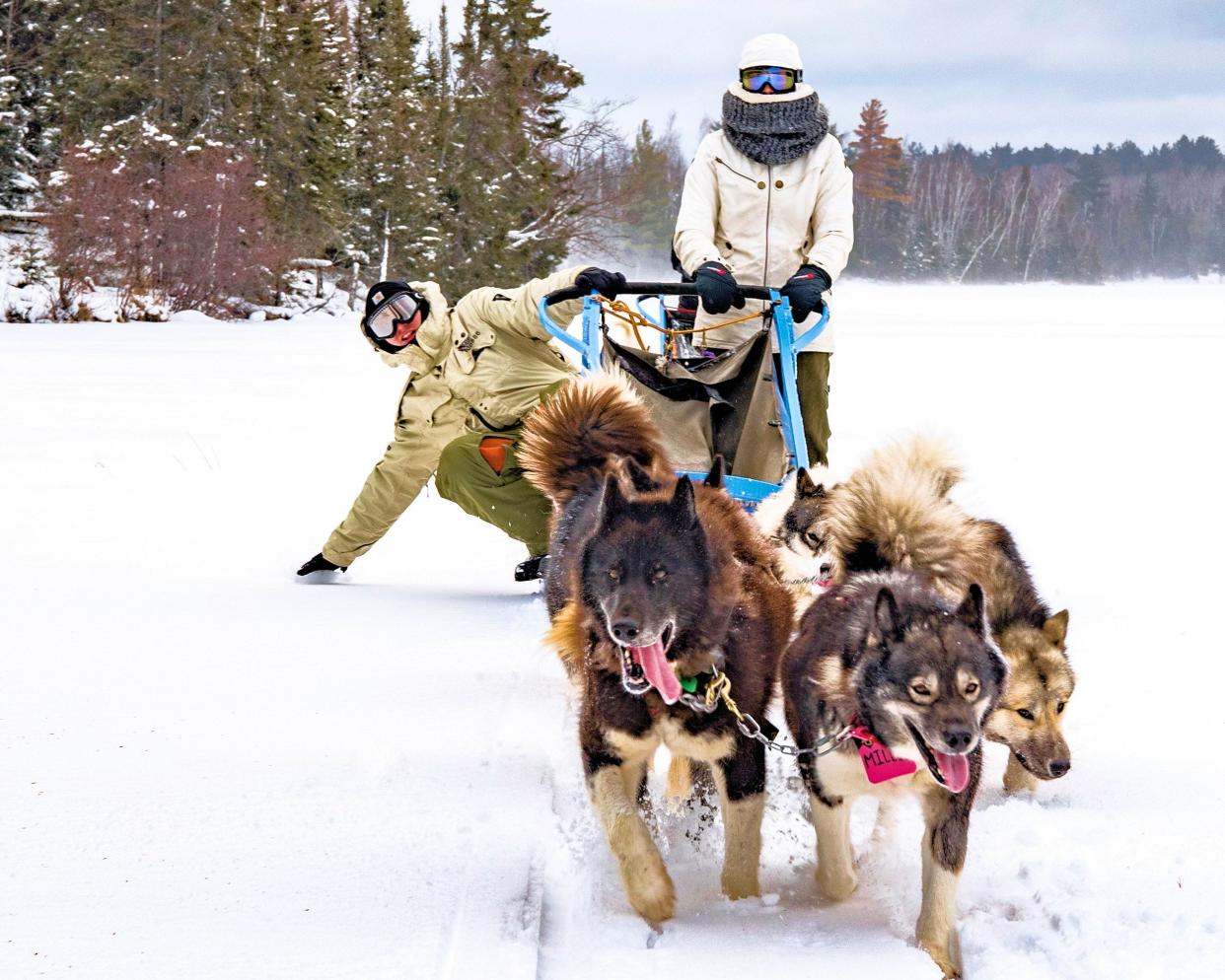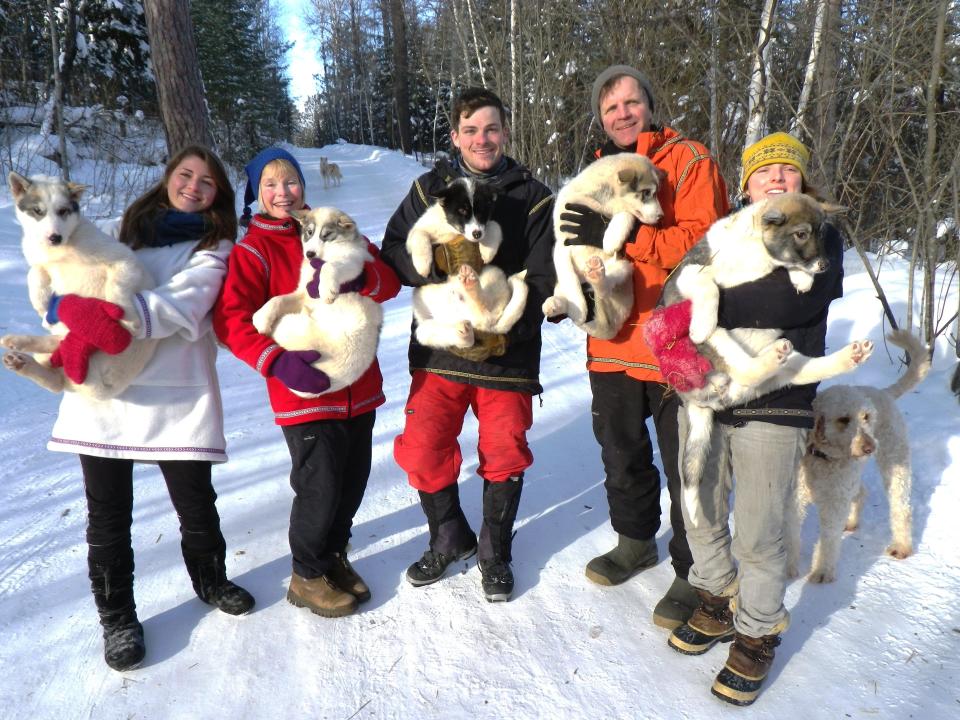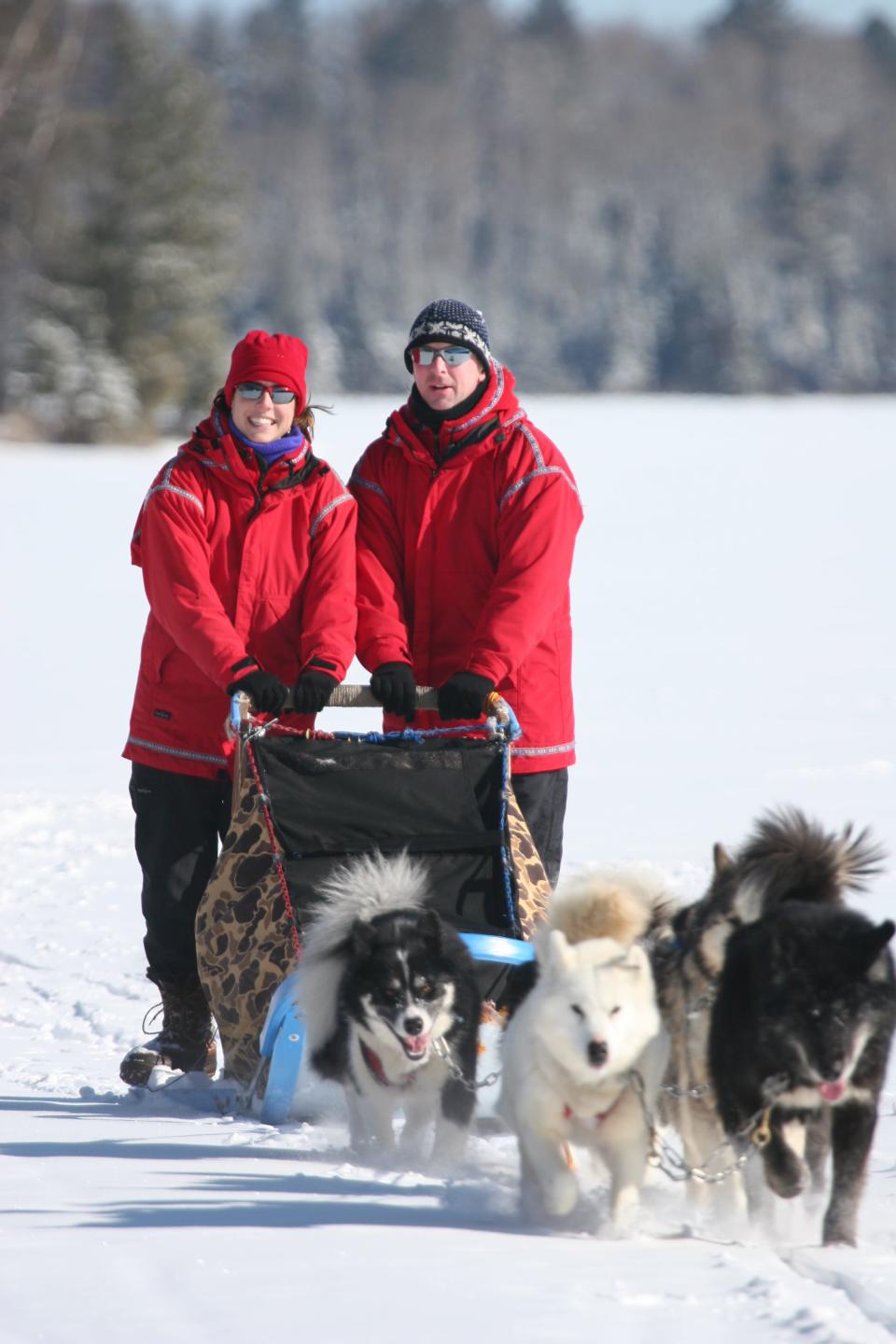In the Boundary Waters, winters are now 'nail-biters' for one dogsledding company

ELY, MINNESOTA – For Paul Schurke, the northern Minnesota wilderness becomes its fully wild self in the winter. The colorful fall foliage disappears, revealing moose, wolves and lynx. The night sky kicks into gear as the northern lights illuminate the horizon. And there is rarely another soul around.
“It looks wilder and it feels wilder,” said Schurke, owner of Wintergreen Dogsled Lodge in Ely, Minnesota.
Winter is a way of life for Schurke and his family. But that way of life is vanishing.
Ely sits in northeastern Minnesota roughly 15 miles south of the Canadian border. The quaint town is one of the main entry points into the Boundary Waters Canoe Area Wilderness, a million-acre area within the Superior National Forest that sees more than 150,000 visitors each year.
The national forest is at the southern edge of the boreal forest, one of the fastest warming biomes in the world. And Minnesota is one of the fastest warming states in the U.S.
Since Paul and his wife Susan launched their dog sledding business in the late 1980s, they’ve cut down winter operations — by weeks.
The window that once stretched from the beginning of December to the end of March is now two weeks shorter on both ends.
Paul recalled the “good old days” back in the '90s when the area received two or three feet of snow in early December that would hold through late March. A quick thaw usually happened in January or February that created a crust on the surface of the snow, which made it more favorable for mushing. The ground would be covered with a consistent snowpack from then on, he said.
Now some winters are nail-biters, he said, where warm rain washes away the snowpack and melts the ice so the lakes turn to slush, making him question whether the dogs will get out again that season. While heavy snow events are becoming more frequent, snow is melting faster than ever with more winter thaw dates between 2010 and 2020 than ever recorded previously.
As these year-to-year inconsistencies became evident, Paul wondered whether he should pass down the business to his son Peter or wind down and call it good.

Dog sledding introduces visitors to the beauty of the boreal forest
Paul grew up in the Twin Cities and fell in love with the Boundary Waters during a church youth group canoe trip. He was immediately smitten by the beauty of the boreal forest.
After college, Paul and a classmate launched Wilderness Inquiry, a nonprofit wilderness adventure program that did guided trips with people with disabilities. The company got its start in the late 1970s doing canoe trips in the Boundary Waters. Today, the company guides trips around the world.
Paul and Susan moved to Ely in 1981. At the time the town had hit a low point, he said, logging had slowed, taconite mining was long gone and tourism hadn’t taken off yet.
Paul created the dogsled adventure business — the winter counterpart to his guided canoe trip company — shortly after they moved up north.

Today the company has 60 Canadian Inuit dogs, the oldest domesticated canines and closest cousins to wolves. Visitors from all over the world go mushing through Wintergreen Dogsled Lodge to experience northern Minnesota’s wilderness.
While the Boundary Waters is more commonly known as a paddle hotspot May through September, Paul said it’s a different clientele that wants to visit in the winter.
That gives Paul and his family a chance to introduce people to the beauty of the area and advocate for protecting it.
Warmer winters mean getting creative with the business
During the last decade, climate change has had the Schurkes' dog sled business on a roller-coaster ride. Not being able to count on robust winters made it difficult to plan for the future of the business.
While the mushing season started late the past few years, Ely eventually had cold temperatures and deep snowpack — conditions that helped tip the scales when the Schurke family was deciding the fate of the business.
Riding on the encouragement of the last few years, the family decided Peter should give it a try. This upcoming winter will be a transition period for Peter, setting him up to take over next year.
But it may be a rough start, Paul said, as forecasts suggest that Minnesota’s winter will be influenced by El Nino, likely bringing warmer temperatures and less snowfall.
There are always challenges for small business owners, Peter said, and climate change is adding new ones. Canadian Inuit dogs run best in colder temperatures, he said, so they can tell when it’s warmer even if it’s still below freezing.
Climate change may mean getting creative, he said.
Many people go dogsledding because they want to learn and experience being around the dogs, Peter said. Getting creative may mean instead of hopping on a ride, they may need to find other ways that visitors can connect with the dogs.
“We cross our fingers and hope for the best,” Paul said. “And that’s where we are at right now.”
Caitlin Looby is a Report for America corps member who writes about the environment and the Great Lakes. Reach her at clooby@gannett.com or follow her on X @caitlooby.
This article originally appeared on Milwaukee Journal Sentinel: Warmer winters are changing how Boundary Waters mushers do business

